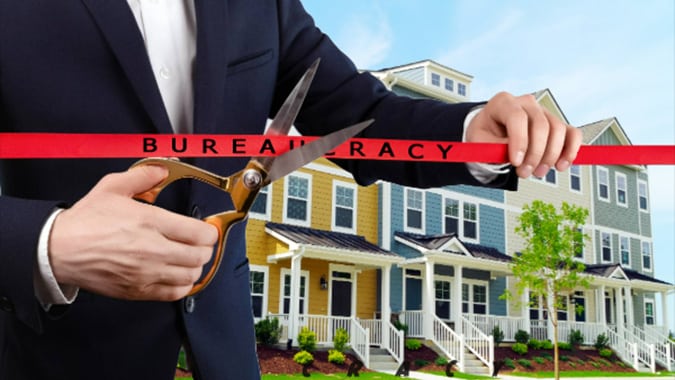A Senate committee on Thursday released two bills, both supported by NJBIA, that would advance the goal of making New Jersey more affordable and economically competitive by bringing tax relief to New Jersey businesses and residents and spurring economic growth.
NJBIA Vice President of Government Affairs Christopher Emigholz testified in favor of both bills, which were released by the Senate Community & Urban Affairs Committee.
“Just as many small hits to New Jersey business and the economy can add up, there are also many smaller positive steps that can incrementally improve affordability in New Jersey,” Emigholz said. “We are encouraged that the start of the new legislative session includes legislation, with sponsorship and support from both sides of the aisle, that seeks to address and improve affordability in the state.”
The first bill, S-330, sponsored by Sen. Troy Singleton (D-7), would help reduce property taxes by increasing distribution to municipalities from the Energy Tax Receipts Property Tax Relief Fund. Over the past two decades the state has been diverting this tax revenue collected from utilities, which is intended for municipal aid, for other state purposes.
The legislation would increase payments to municipalities over five years to restore previous municipal aid cuts and require a corresponding reduction in the municipal property tax levy to ensure the tax relief is reflected in the property tax bills paid by businesses and residents.
“This legislation will recapture more than $330 million of lost municipal aid, which can be a step toward reducing the highest property taxes in the nation,” Emigholz said. “This is a bill with some history. But with the well-established need and desire to make New Jersey more affordable, now is the time to get it to the governor’s desk and into law to make a dent in our highest-in-the-nation property taxes.”
Another bill advanced by the Senate committee, S-616, sponsored by Senator Holly Schepisi (R-39), would help further economic growth by authorizing the establishment of regional economic development partnerships for joint regional economic planning and strategies.
“This is a bill NJBIA supports because it will encourage better and more collaborative economic development planning on a regional level, which is a method used in other states,” Emigholz said. “When economic planning and partnerships go beyond municipal borders, it’s a pathway to find real efficiencies, cost-sharing and cost-savings – which hopefully filters down to taxpayers.”
The committee took no action on a third bill strongly supported by NJBIA, that would eliminate the supplemental realty transfer fee, which is levied on a graduated scale based on the selling price of a home or other building.
That bill, S-114, is sponsored by Sen. James Holzapfel (R-10), is supported by NJBIA because the elimination of the transfer fee would reduce costs to property owners and developers and help stimulate economic growth in New Jersey.

